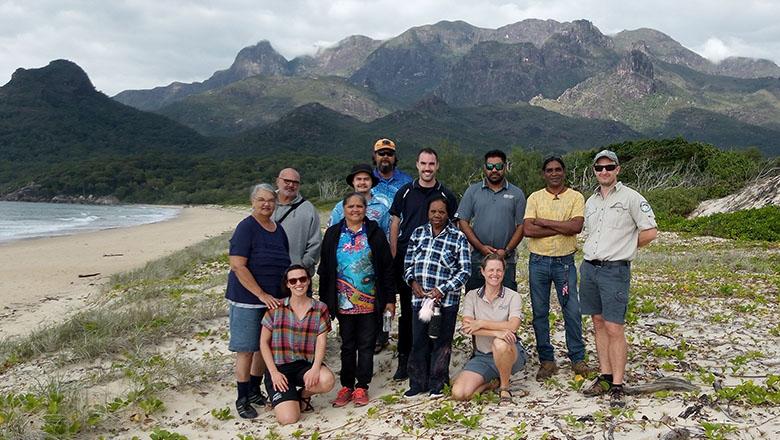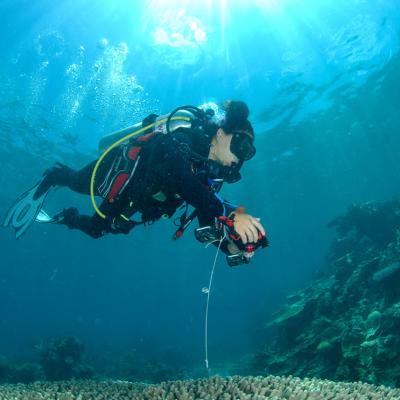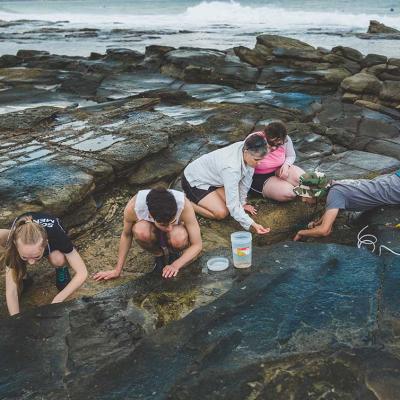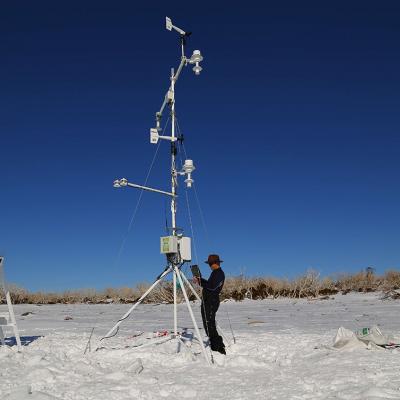James Wheeler’s love of nature documentaries as a child eventually led him to the Master of Environmental Management – and to the essential ecotourism work he does today.
It’s funny how our earliest memories can sometimes align so neatly with our passions and even our chosen professions as adults. This is certainly the case for James.
“I remember growing up – back before DVDs were really a thing – our whole family would gather around the lounge room TV on Sunday nights to watch my favourite documentary series on Channel Seven, The World Around Us,” he says.
Featuring regular hosts like Ernie Dingo and documentaries from names such as Malcolm Douglas and Sir David Attenborough, this series was James’s first hint that environmental management might be his calling.
“I was completely fascinated by the awe-striking beauty of our planet and the incredible, often strange lengths that species would go to simply to survive,” he says.
“It was these Sunday nights that instilled within me a love for our environment and ultimately led me to where I am today.”
James’s journey so far
Despite his emerging passion for it, environmental management wasn’t the first career path James walked down. As an undergraduate at UQ, he was unsure what degree to pursue and ended up studying what felt like the sensible option at the time – commerce and law.
But it didn’t take long after graduating for James to realise he was neglecting his real calling.
“It wasn’t until I started in the workforce full time that I began to feel a disconnect between my job and what I was passionate about,” he says.
“When I reflected on the things that excited me the most, I decided to turn my love of nature documentaries into a career. After receiving lots of advice from people from all walks of life, I settled on studying the Master of Environmental Management at UQ.”
The feeling of finally being on the right path was almost instant.
“The Master of Environmental Management was a fantastic program as it gave me a brief crash course in science 101, but it also exposed me to a variety of different topics and career options.”
“I was able to learn about everything from understanding climate change, conservation and wildlife biology, regulatory frameworks, sustainable business practices, anthropology, spatial mapping and fire management,” James says.
“The wide variety of knowledge areas and quality of courses allowed me to determine which career path I wanted to take and prepared me well for employment.”
Each course in the program helped prepare James for his current role, but there are a couple that had a particularly big impact for him:
Where tourism meets conservation
James now works as a senior project officer in the Ecotourism team within Queensland’s Department of Environment and Science.
“Our team is responsible for delivering world-class ecotourism experiences that support the conservation of Queensland’s natural ecosystems, heritage assets and unique Aboriginal and Torres Strait Islander culture,” he says.
What does this job look like?
The role is immensely rewarding, but it’s also hard to pin down – no two days look the same. As a small snapshot of the job, James regularly finds himself:
- drafting new policies
- assessing new ecotourism proposals
- responding to public enquiries
- preparing presentations for the Minister
- meeting with other state agencies, First Nations people and private operators to discuss and negotiate projects
- reviewing reports on threatened species and ecosystems protected through the department’s Ecotourism Program.
“The best part of my job is getting to travel to amazing locations across Queensland and getting out on Country to meet with private operators, rangers and First Nations people.”
While his time in this role has already yielded many successes and highlights, there’s one project that stands out for James.
“The most incredible experience has been working with the Bandjin and Girramay Traditional Owners on the strategic management of Munamudanamy (Hinchinbrook Island),” he says.
“I’ve been fortunate enough to be welcomed onto Country to learn first-hand about its rich cultural history and better understand how to incorporate Indigenous knowledge into the day-to-day management of our national parks.”

James also feels privileged to work alongside passionate and intelligent people who share his drive for making a difference.
“While some workdays can be difficult, getting up out of bed every day is never hard.”
With his education, experience and dedication, James is creating change to help the Department of Environment and Science tackle the countless challenges that it – and the whole world – faces today:
- conserving and protecting vulnerable fauna and flora
- promoting sustainable industry practices
- reducing waste and emissions
- keeping national parks accessible for all to enjoy
- fostering stewardship in the next generation.
Through his work and the efforts of Master of Environmental Management graduates like him, James hopes the beautiful nature documentaries from his childhood can be reproduced by filmmakers well into the future.





